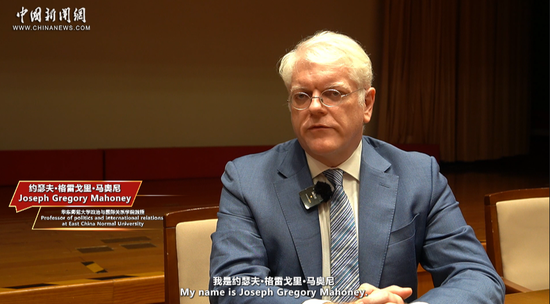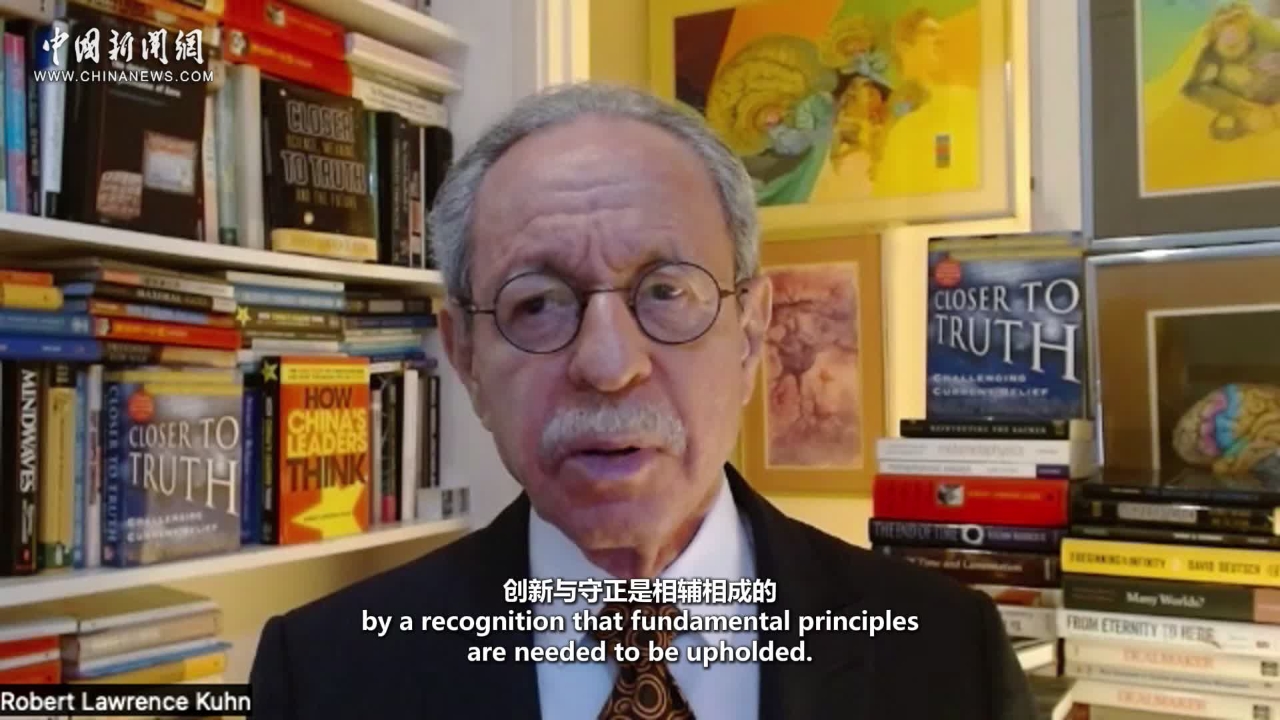China's plan to enact a law against cross-border corruption is an essential step to improve its domestic anti-graft legal system and also a crucial move to enrich its legislative toolbox related to foreign affairs, experts said.
Their comments came after the formulation of the law had been written into a resolution adopted at the third plenary session of the 20th Central Committee of the Communist Party of China, which concluded in Beijing last month.
The resolution on further comprehensively deepening reform to advance Chinese modernization provides guiding principles for various fields for the next five years. It requires intensified efforts to advance the national anti-corruption legislation, revise the Supervision Law and draft a law on countering transnational corruption, which refers to corrupt acts committed by individuals or enterprises outside the country, experts said.
Xu Shuang, an associate professor at China University of Political Science and Law, said, "Given that corruption at home and abroad has become increasingly intertwined, it's imperative to make such a law."
She said that China's pursuit of fugitives and recovery of ill-gotten assets is an international endeavor, and emphasized that a coordinated approach is needed to promote the rule of law at home and in matters involving foreign affairs.
"In other words, formulating the law is not only conducive to serving the pursuit of fugitives and improving our country's domestic governance, but also is part of global governance and the legalization of international relations," Xu added.
Wang Xiumei, a law professor at Beijing Normal University, emphasized the important role of the law, saying that it will be a specialized and comprehensive legislative item in China's fight against corruption.
Transnational corruption includes premeditation and collusion before a corrupt act is committed, as well as asset transfers or money laundering after the act, Wang said.
"Therefore, the law, while advancing pursuits, will also help regulate the integrity of our country's businesses in international commercial activities, strengthen our exchanges in law enforcement with relevant countries and deepen our global cooperation in combating corruption," Wang said.
"The legislative item will fill the gap in China's prevention and punishment of transnational corruption, and contribute to enhancing the anti-graft legal system," Wang added.
Highlighting the importance of referring to international rules, treaties and conventions while drafting the law, Wang stressed that China's national conditions must also be taken into account, as the ultimate goal is to form a cross-border corruption law with Chinese characteristics.
In addition, efforts need to be enhanced in the signing of extradition treaties and judicial cooperation, with more regulations enacted to complement the law and ensure the integrity of enterprises, Wang added.
Tighter net of justice
Xu, the associate professor, said that if the law is enacted, corrupt enterprises can be targeted and their behavior overseas will also be regulated, which means China's net of the justice to combat corruption will become tighter.
China is a signatory to the United Nations Convention Against Corruption, but the convention and domestic criminal legal documents currently target mainly corrupt officials, according to Xu.
In September last year, formulating a law to counter cross-border corruption was listed as a major task in a legislative plan of the Standing Committee of the 14th National People's Congress, China's top legislature.
This means that a draft of the law is expected to be unveiled during the five-year term of the 14th NPC Standing Committee, which concludes in 2027.
Yang Weidong, a law professor at China University of Political Science and Law, said that highlighting the law in both the legislative plan and the resolution "demonstrates China's stronger determination and clearer goal to strengthen the fight against corruption through legislation".
Yang said that enactment of the law, which would serve as a legislative tool to regulate the acts of Chinese individuals and companies overseas, also would enrich the country's legal toolkit involving foreign affairs.
However, it will take some time for the draft law to be made public, he added, because the international situation is complex and changing, and investigations and the collection of evidence won't be easy tasks overseas due to differences between China and other countries regarding legal systems and concepts.
Praising the nation's efforts in recent years in pursuing fugitives and recovering stolen assets, experts said that the successful experience can serve as a reference for the formulation of the law.
Official data showed that since 2014, about 9,000 economic crime suspects have been captured and handed over to China by more than 120 countries and regions via the Fox Hunt operation, leading to the recovery of about 49 billion yuan ($6.85 billion) in assets.
The operation is part of the Sky Net campaign initiated in 2015 by the Fugitive Repatriation and Asset Recovery Office of the Central Anti-Corruption Coordination Group. The campaign targets fugitives facing corruption charges.
One of the priorities of this year's Sky Net campaign, which was launched in March, is to deepen cross-border corruption governance.


















































 京公網安備 11010202009201號
京公網安備 11010202009201號